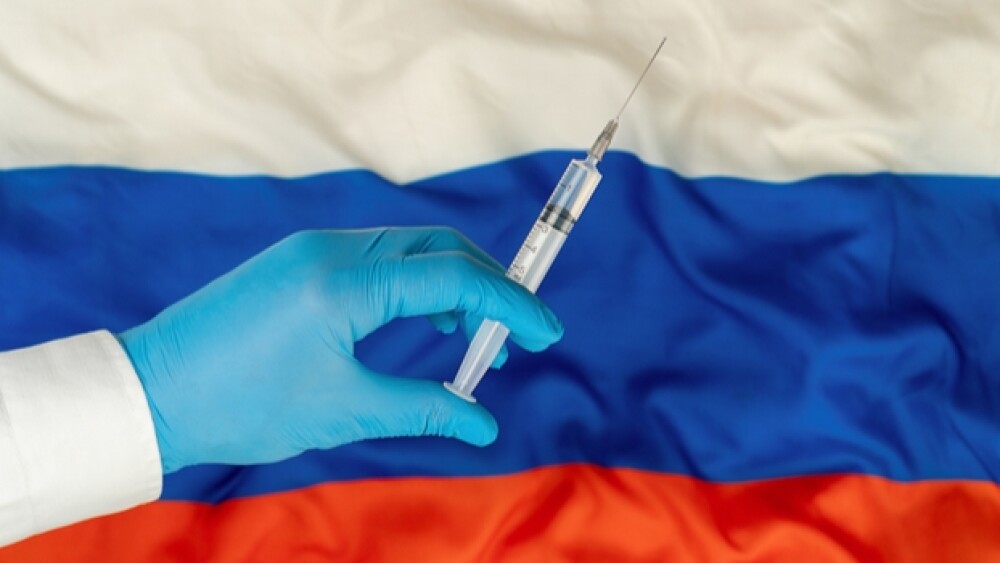Days after Pfizer and BioNTech announced their mRNA vaccine for COVID-19 demonstrated 90% efficacy at an interim analysis, Russia is claiming the vaccine it authorized in the fight against the novel coronavirus is 92% effective following an interim analysis of its ongoing Phase III study.
Days after Pfizer and BioNTech announced their mRNA vaccine for COVID-19 demonstrated 90% efficacy at an interim analysis, Russia is claiming the vaccine it authorized in the fight against the novel coronavirus is 92% effective following an interim analysis of its ongoing Phase III study.
This morning, Russia’s National Research Center for Epidemiology and Microbiology announced the Sputnik V vaccine, which the country authorized for use against COVID-19 in August, had an efficacy rate of 92% following administration of the second dose. Efficacy was demonstrated on the basis of a first interim analysis obtained 21 days after the first injection during the ongoing Phase III study, the Russian health agency said in its announcement. As a result of a statistical analysis of 20 confirmed cases of coronavirus, the case split between vaccinated individuals and those who received the placebo indicates that the Sputnik V vaccine had an efficacy rate of 92% after the second dose, the health agency said. Detailed results of the study will be published later, the agency said.
The interim analysis was conducted after 20 participants in the trial developed COVID-19 and examined how many had received the vaccine versus a placebo. That number of infections is significantly lower than what Pfizer and BioNTech used in its announcement. The Western pharma companies reported their interim findings following 94 infections among trial participants.
Following Russia’s approval of Sputnik V in August, the government of that nation said it would begin to administer the vaccine to frontline healthcare workers and expected to begin marketing the drug to multiple nations by the end of the year. In October, the Russian government approved a second vaccine after it began Phase II studies with 100 patients in Novosibirsk, the third most populous city in Russia.
Russia has the fifth-highest number of confirmed COVID-19 cases in the world, according to the Johns Hopkins COVID-19 dashboard. As of this morning, there are 1,822,345 confirmed cases of COVID-19 in that country, with more than 32,000 virus-related deaths. COVID cases exploded across Russia in October as a second wave of infections rolled across Europe and Asia.
Alexander Gintsburg, director of the Gamaleya Center, said the interim data “convincingly demonstrate” the efficacy of Sputnik V and will lead to mass vaccination across Russia in the coming weeks.
“Thanks to the production scale up at new manufacturing sites, Sputnik V vaccine will soon be available for a wider population. This will break the current trend and lead to an eventual decrease in COVID-19 infection rates, first in Russia, then globally,” Gintsburg said in a statement.
According to the Russian announcement, Sputnik V has been administered to 40,000 people in the Phase III study, as well as an additional 10,000 volunteers from the “red zones” of Russian hospitals. Data has been collected on those “red zone patients,” which includes medics and other high-risk people and, among those patients, the vaccine has demonstrated an efficacy rate of 90%, the Russian health agency said.
Russia’s Sputnik V vaccine is an adenoviral vector vaccine developed by Moscow’s Gamaleya Institute. The vaccine has been genetically modified to infect cells than make those cells manufacture spike proteins of SARS-CoV-2, the novel virus that causes COVID-19.
“The uniqueness of the Russian vaccine is in using two different human adenoviral vectors that enable to provide strong and long-term immune response after the second injection,” the health agency said.
As of Nov. 11, Russia said more than 20,000 volunteers have been vaccinated with the first dose of the vaccine and more than 16,000 volunteers received the second dose of the vaccine. No severe adverse events have been reported beyond flu-like symptoms, including fatigue, headache and fever, the health agency said.
Sputnik V Phase III clinical trials are ongoing in Russia, Belarus, the United Arab Emirates, Venezuela and other countries. A Phase II/III study is being conducted in India.





